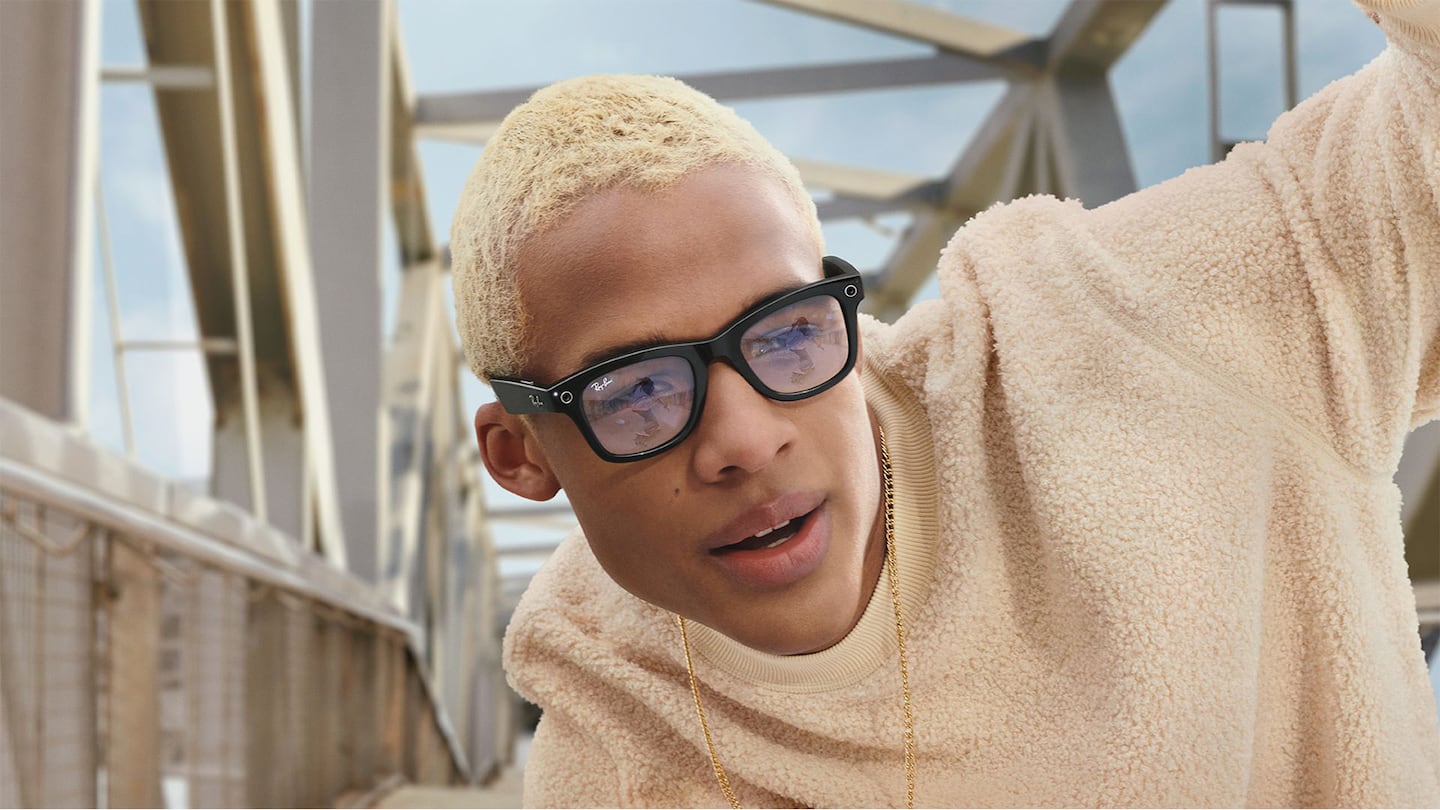
The Business of Fashion
Agenda-setting intelligence, analysis and advice for the global fashion community.

Agenda-setting intelligence, analysis and advice for the global fashion community.

Very Meta
Wearable technology that consumers find both useful and fashionable has frustrated even the biggest technology and fashion companies. The market is littered with failed attempts at true augmented reality via spectacles or headsets. The most notable success, the Apple Watch, is a hit. But the ability to transfer some iPhone capabilities to users’ wrists is hardly the virtual utopia fashion futurists dream of.
Some of Silicon Valley’s biggest players are giving it another go, though. Last week Snap demoed augmented reality shopping tools, including a realistic virtual try-on service, exactly the sort of consumer-friendly application that could convince some to take the leap into wearing the company’s Spectacles. And Meta’s Ray-Ban smart glasses appear to be one of the flagship products at the company’s first store, which opens Monday. The glasses, which allow the wearer to take photos, shoot videos, stream music and send texts, have been on the market since September. They remain a niche product, but Meta clearly has big ambitions in the category. Last week, Mark Zuckerberg was spotted in Italy meeting with fashion executives, including the CEO of Ray-Ban owner EssilorLuxottica, but also the leadership of a slew of big luxury brands. Zuckerberg teased a new wearable product, which he described as a “neural interface EMG wristband that will eventually let you control your glasses and other devices.”
The Bottom Line: Snap and Meta have avoided the biggest misstep of past generations of wearables by creating products that, to the casual observer, look like appealing analog products already on the market. Now, they must roll out features that are fun and useful enough to convince consumers that they need to wear a camera on their head in addition to a smartphone on their wrist.
ADVERTISEMENT
Unicorns No More
Online retailers and digital direct-to-consumer brands have always had to navigate all of the usual problems faced by fledgling fashion companies and tech start-ups. For a long time, clever branding and rapid growth paved over pesky questions about profitability and whether their disruptive business models could scale, or were in fact disruptive at all. Now, as investors dump technology stocks, fashion firms are being hit especially hard. Allbirds, which had a $4.1 billion valuation after its November 2021 IPO, now has a market capitalisation of $890 million. The RealReal, among the first in its class to go public, has seen its market cap plummet from $2.3 billion in 2019 to $500 million today. Things aren’t as grim as the plunging share prices make it look: Both of these companies have big ambitions, including new stores for Allbirds and AI-powered authentication at The RealReal, and a plausible path to realise them.
The Bottom Line: What these companies really need is consolidation, preferably with the result that they are the last retailers standing. But while there have been some deals, particularly in the resale space, fashion is far more fragmented than streaming video, social media, and many other categories caught up in the tech selloff.
The Week Ahead wants to hear from you! Send tips, suggestions, complaints and compliments to brian.baskin@businessoffashion.com.
Join BoF Professional to get access to the exclusive insight and analysis that keeps you ahead of the competition. Subscribe to BoF Professional here.
Brands are using them for design tasks, in their marketing, on their e-commerce sites and in augmented-reality experiences such as virtual try-on, with more applications still emerging.
Brands including LVMH’s Fred, TAG Heuer and Prada, whose lab-grown diamond supplier Snow speaks for the first time, have all unveiled products with man-made stones as they look to technology for new creative possibilities.
Social networks are being blamed for the worrying decline in young people’s mental health. Brands may not think about the matter much, but they’re part of the content stream that keeps them hooked.
After the bag initially proved popular with Gen-Z consumers, the brand used a mix of hard numbers and qualitative data – including “shopalongs” with young customers – to make the most of its accessory’s viral moment.